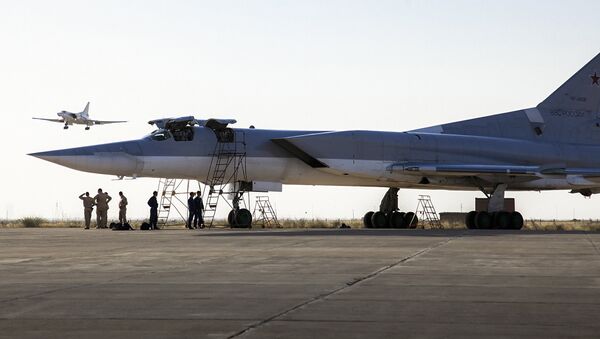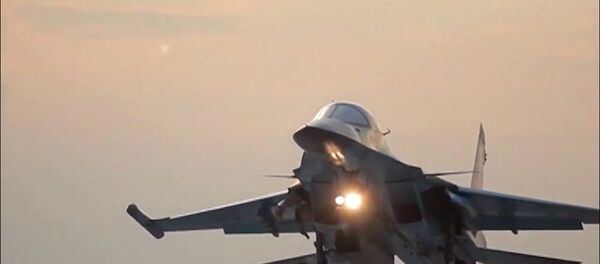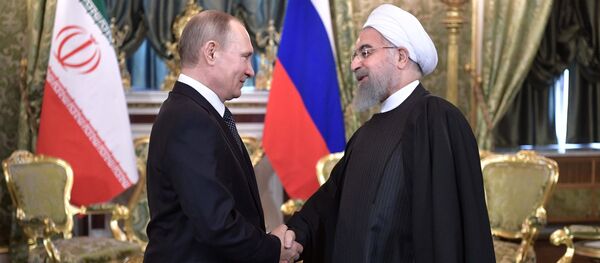There is no doubt that Iran will allow Russia to use its bases in the fight against terrorism, according to Mostafa Azerian, an independent Iranian political analyst and expert in Russian-Iranian strategic ties. However, the question of a permanent Russian base in Iran raises controversy.
"This problem should be taken in a geopolitical perspective. After the end of the Cold War, Russia has been the only global power to restrain US global ambitions. In terms of security, several regions are crucial for Russia, including the Middle East. The US continues its global military expansion, which creates risks for Russia’s military security. Of course, in such an environment, Russia has every right to take responsive measures, including cooperating with its allies in missile defense and bases deployment," Azerian told Sputnik Persian.
At the same time, according to Azerian, the Iranian Constitution stipulates that the establishment of any kind of foreign military base in Iran is forbidden, even for peaceful purposes.
"However, if there is a matter concerning Tehran’s national security the Supreme National Security Council may allow Russia to use Iranian military bases," Azerian added.
In turn, Nikolai Kozhanov, an expert in Iranian studies and associate professor with the European University at St. Petersburg, suggested that a permanent Russian military presence in Iran would be unreasonable and hardly possible.
"The establishment of a base in a region with a serious American military presence would be unreasonable in political and economic terms. There is no cold war between Russia and the US, no matter what our politicians say. This is why engaging in such a standoff would be reckless," Kozhanov said.
"First, Iran confirmed that it is ready to allow Russia to use the Hamadan base if necessary. At the same time, this agreement is temporary and relates to the situation in Syria," he said.
As for a permanent military presence, such a scenario is hardly possible. Kozhanov echoed Azerian, emphasizing that the Iranian Constitution prohibits the deployment of a foreign military force in the country.
"This principle is rooted in the Iranian national and cultural DNA. No foreign country is allowed to deploy its forces in Iran," Kozhanov said.
Moreover, he pointed out to the fact that there is no unanimity towards Russia’s military efforts among Iranian political elites.
At the same time, according to Kozhanov, despite the fact that military cooperation between Tehran and Moscow remains at an occasional basis, it contributes to strengthening mutual trust and has rather a positive effect on bilateral ties.





